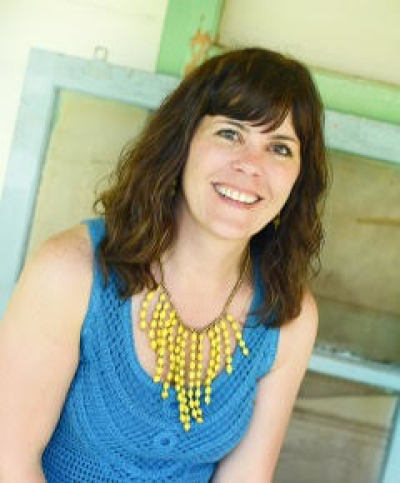5 Ways to Change America From The Dinner Table

We were on the 3rd hour of the trip and somehow the youngest convinced the other two to watch a scratched version of Shrek the Third on the DVD player in the backseat.
As we drove, my husband looked over at me and said, "Why do we own this movie?"
I shrugged and pointed to the old album of discs we keep in the car for moments of travel desperation.
At one point, I guess we were both tuning in because we heard our soon-to-be third grader ask why one of the princesses was a man dressed like a woman with heavy stubble.
"Because someone thought it would be funny," a sibling answered.
Subtle, Hollywood.
Terrell and I talked about the way kids movies, TV shows and teen books are filled with innuendoes, edgy subject matter and an obvious effort to normalize alternative lifestyles to the next generation.
"It's easy to ignore, laugh or shrug it off, but we need to point this desensitizing out to our kids when we see or hear it. And turn it off," he said.
It's part of teaching our kids what we believe is right and wrong.
I don't know about you, but I cringe at the world I'm raising my kids in. My online feed is a battleground of opinion and the daily news is like a horror show.
It's not just that our culture vies for an anthing-goes-lifestyle, it's that we don't understand the value of life. We live in a world where a lion's death trumps a human's life. We live in a world where the senseless death of an animal causes more outcry than the brutal dismembering and selling of unborn babies.
Yes, both are wrong, but one we abhor, and the other we make possible through legislation.
Recently, I ran across an old quote from my favorite president and I haven't been able to get it out of my head:
I'm not political. I don't jump on every bandwagon or issue. I don't engage on Facebook when someone says something I don't agree with and I honestly try not to jump into controversy (although occasionally I stumble into it here). I'm a wife and mom and writer and most days between those big jobs and saying yes to God, there's not much left when I fall into bed.
But I can see that America is changing. And I can see that American needs to change.
And I have to agree with The Gipper — great change for our country starts in the center of our home at the table.
It's the place we communicate with one another, care about each other, celebrate and challenge each other. The table is the place we teach our children right from wrong, it's our lectern. It brings us together, so together we can change the world.
When we intentionally tackle tough issues, cultural shifts and trends, and communicate truth to our kids over a meal, we are giving them something secure to come home to in a world that is balancing precariously on a sandy foundation.
When we turn our table into a tool, our home becomes a classroom, and our children world changers.
5 Ways to Change America From the Dinner Table:
1. The Table Creates a Healthier Family
It might sound too simple, but simply having dinner together makes an impact on the family and eventually the world. It's far too easy to let the busyness of schedules, sports, school and society interrupt dinner. Research shows the long term emotional and educational benefits to families is monumental. It's the best time to connect and communicate, to check-in with each other. There are countless health benefits of eating dinner together, but the "parental engagement fostered at the dinner table can be a simple, effective tool to help prevent bad choices and addictions later," research says. So, basically, we are better when we eat dinner together.
2. The Table is Where We Break Open Both Kinds of Bread
Food is a great opportunity to introduce culture and new countries to our family. What better way to learn about oppressed people groups or impoverished areas or intriguing cultures than by getting a small taste of how other people eat and maybe live? Food opens the door to the rest of the world and makes room for perspective, one of the best gifts we can offer our family. Our dinner table can become a pulpit where we open God's Word and compare and contrast and consider truth with a verse here and Bible story there. It's not about quantity (and with kids, it's often not about quality), it's about consistency. Breaking Holy Bread at the table is a significant way to say to our children — this matters as much as eating. It's imperfect and messy, and it's important. It's life.
3. The Table is Where We Talk About Current Issues (or the latest kid's movie)
Gathering around the table affords us the chance to talk. Sometimes it's goofy and silly and seemingly insignificant. (Don't believe that.) But some nights, it's family communion where we connect with each other and God on a deep level. When we make this time a priority, we make room for this to happen. Talking about our day at school and work one day leads into praying about the bully on the playground and the stress of a tough boss on another. When we linger at the table and lay our thoughts and opinions on it, it becomes the perfect place to talk about what's going on in our world.
4. The Table is Where We Teach Absolute Truth
Truth has become a bad word in our culture where nothing is absolute and standards are doubled and everything is subjective. Murder is okay inside the womb, but not out. We have freedom to live however we want, unless our religious convictions make someone uncomfortable. "God's word is truth" (John 17:17). If we explain to our children what the Bible says about right from wrong, we are teaching them truth that doesn't change.
5. The Table is Where We Learn to Love
The table is where we model manners to our children. It's where we teach babies basic communication and toddlers courtesy. The table is a place of comfort with favorite foods that remind us of home and fond memories we carry with us as adults. It's the place we learn to take care of and love other people. When absolute truth is taught and love isn't, judgmental and pious Christians are fostered. But when we teach and exemplify love of God and others (especially to those we don't agree with), over our own opinions and desires, we raise kids who change the world.



























